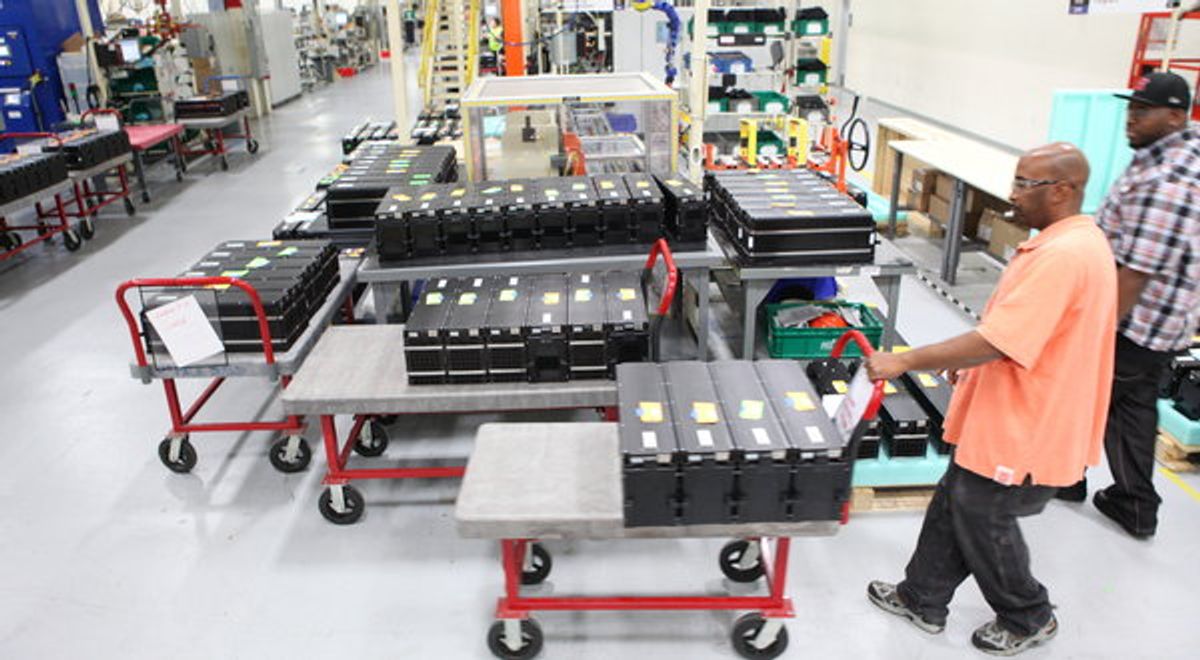Some have predicted that the A123 bankruptcy will be painted as another Solyndra, the California maker of photovoltaics that failed despite heavy backing from the Obama administration. Of course, when Konarka, a solar cell company from Massachusetts, the state Republican presidential candidate Mitt Romney was once governor of, went belly up earlier this year, some suggested that it could be spun into “Romneys’s Solyndra."
The underlying problems of A123 Systems, Solyndra, and Konarka are not political ones of governmental policies—they're illustrations of the futility of ignoring good old-fashioned supply-and-demand economics. (Solyndra, besides never being competitive with traditional energy sources, was also forced to compete with heavily subsidized solar alternatives.)
There is little question that A123 Systems made a better Li-ion battery than its competitors. The problem was the nano-enabled battery that they came up with for powering electric vehicles( EVs) was not in competition with other Li-ion batteries, but with the internal combustion engine.
This is not a political issue or an ideological issue, it’s a numbers issue. Back in 2010, Energy Secretary Steven Chu made clear the conditions of success for EVs when he said, "A rechargeable battery that can last for 5000 deep discharges, [have] 6–7 x higher storage capacity (3.6 Mj/kg = 1000 Wh) at [a] 3x lower price will be competitive with internal combustion engines (400–500 mile range)." Full stop.
The pity of the story is that A123’s bankruptcy—after its auspicious beginnings--might pour cold water on the entrepreneurial ardor of other ambitious scientists. It shouldn’t. However, businesses need to assess realistically their competitive landscape even when they are based on a gee-whiz technology.
A123 Systems unfortunately appears to have fallen victim to the belief that if it could simply come up with a better Li-ion battery than its competitors, it would be powering EVs of the future. What it failed to recognize was that first EVs had to win the market from the petrol-based cars of today.
Dexter Johnson is a contributing editor at IEEE Spectrum, with a focus on nanotechnology.




